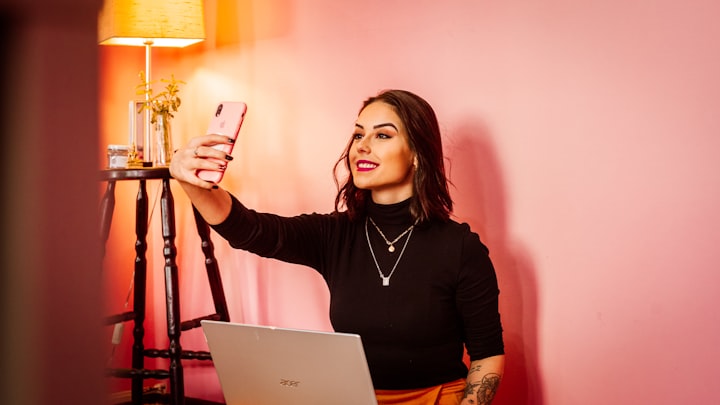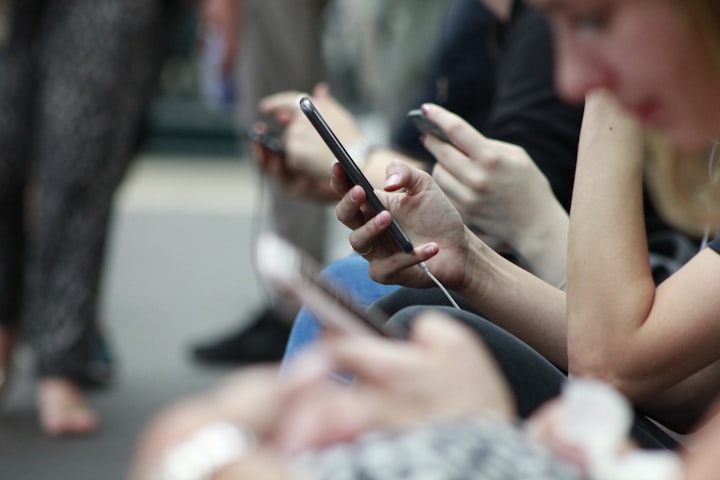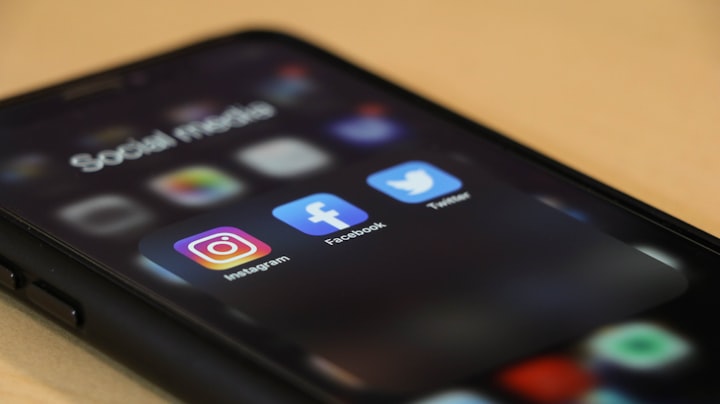Teenagers and Insecurity
An Investigation into Compassion

Something I have noticed over my time as a teen and then as a teacher to teens is that every teenager on the planet is insecure about something. For me, it was my height. I was shorter than all the model-length girls at school. Everyone else was 5ft 6 or above and I stood at about 5ft 3 and to this day, I only stand at about 5ft 4.
Insecurities range from height to weight to even a person's own facial features and come about through the teen years and the culture which is, at that time, 'cool' to be a part of. As the world has changed and social media has more of an influence on teens than ever, we can see clearly that there is a massive influence of not only social media itself, but the people on it. Teenagers are much more vulnerable to their insecurities through seeing these perfect pictures online. The more they are presented to them, the more harm they will do to the teenager's mind and their self-esteem.
Let's take a look at how, why and where this can have its impact and what we can do to lessen the amount of impact it has over teenagers everywhere and therefore, build up their self-esteem.
Where is this most likely to happen?

The term 'Instagram Influencer' is something I only learnt about maybe three months ago. But since then, I have come to discover the real amounts of harm that some of these people do to the self-esteem of their teenaged demographic.
For example: I was researching and found an Instagram influencer that gained followers by portraying herself living what would be considered by some to be the perfect lifestyle. Travel, fashion, beauty alongside this woman being fairly thin, pale and blonde with just the right amount of tan and a hell of a lot of photo-editing. Whilst looking through her profile, I saw that there were younger people commenting, liking and obviously religiously viewing her content daily. But, one thing I was not prepared for is the amount of 'I want to look like you....' and that talk that was going on. This is dangerous.
The photos these people post are not real pictures. They are studio quality, professional, heavily edited pieces of art rather than life. But can a teeenager tell the difference between what is clearly heavily edited and what is not? Probably not. But then again, that is not their fault - it is ours.
It is our fault because it is our generation that pushed this photoshop culture. The magazines such as Cosmopolitan and Rolling Stone which always when featuring women, had heavily photoshopped pictures of them. Then we have the unattainable celebrity lifestyle which we, as millennials, have to admit that we were all involved with and very much into. My theory is that if we start taking away the photoshop and showing our real lives and how we actually go about our day to day instead of this stylised beauty pageant of life - we can actually do some good. It is these few Instagram Influencers that are holding us back and making the problem far worse. That is purely because they get to ignore the problem.
Why is this likely to happen?

As we have established, photoshopping applications are possibly the biggest problem for the community of photo-sharing and lifestyle sharing at the moment. As we get older, we realise that most of us really don't care what someone else looks like and are really only concerned about growing healthy relationships and friendships online. However, for a teenager, it is more about the lifestyle being presented by the people that they follow - the way that they look and how they are living their lives are interconnected. They come to believe that the only way that you can possibly have a life like that is if you are conventionally attractive.
This is likely to happen not just because of the photoshopping but also because of the way the influencers gain attention through advertisement and endorsements. For example: when advertising a foundation cream, a white-blonde woman is more likely to get the endorsement than a black woman. Why? Well, that's because it is easier in the western world to make a foundation cream for white skin. This endorsement pushes the 'influencer' into higher numbers and gains them more followers. At the end, for makeup especially, we can see we have an overly filtered sea of people that all pretty much look the same.
This is incredibly harmful to a teenager's mind who already believes that the lifestyle they seek on social media can only be achieved through conventionally attractive features. This is on the fault of the people endorsing the 'influencers'.
How does this happen?

It is two simple equations actually:
- Content + Content endorsed = Ratings
- Ratings + Trend Followed = Influence
The content is what kind of content is being produced by the person's account. This content then manages to get endorsed by something or is shared on some bigger platform - this gains the account ratings. They get more 'likes' and therefore, more attention and more organic growth. These ratings go up and up whilst the person creating the content is now becoming more and more aware of the current trends of the topic they curate. They play upon these trends and then gain even more followers from that. This creates a large range of influence.
I know what you're going to say:
If it's so simple, why haven't you done it already?
It's actually not that simple. This is simply the easiest form in which I could put it. I am not a person who understands how teenagers are influenced by social media and so everything I have written had to be researched. I think that when it comes to influence though - it is easier to influence someone when you have some kind of systemic power over them such as: skin colour, weight and size, perceived beauty, confidence, wealth, access to higher-ups and support/endorsement from major organisations.
I have none of these. I am a small brown girl with not much of a figure, cripplingly shy and I don't think I have access to anyone who is anywhere higher up than I am. So there we go. That's why I have not done it already. That and I do not spend that much time on social media to be able to.
What can we do about it though?

We can encourage teenagers to take their own photographs and make them look a certain way. Now, this may seem a strange exercise. But if you encourage a teenager to change their appearance into the way they think they should look and then tell them to put that appearance on to themselves in their mind. You can clearly see that the child's personality does not actually change. They will come to realise eventually that these looks do not buy things in life. Also, they will come to realise how unrealistic these looks really are.
Another thing we can do is to encourage teenagers to say something good about themselves each day. Getting teenagers to practice gratitude is difficult yes, it always has been even when I was a teenager. However, simply saying one good thing about yourself every day can make a whole lot of difference over a year because that means you have gathered 365 good things about yourself the way you are.
Most of all, we need to give them compassion for whatever they are going through. Compassion creates a narrative of understanding. This understanding could be the difference between life and death.
About the Creator
Annie Kapur
200K+ Reads on Vocal.
English Lecturer
🎓Literature & Writing (B.A)
🎓Film & Writing (M.A)
🎓Secondary English Education (PgDipEd) (QTS)
📍Birmingham, UK






Comments
There are no comments for this story
Be the first to respond and start the conversation.